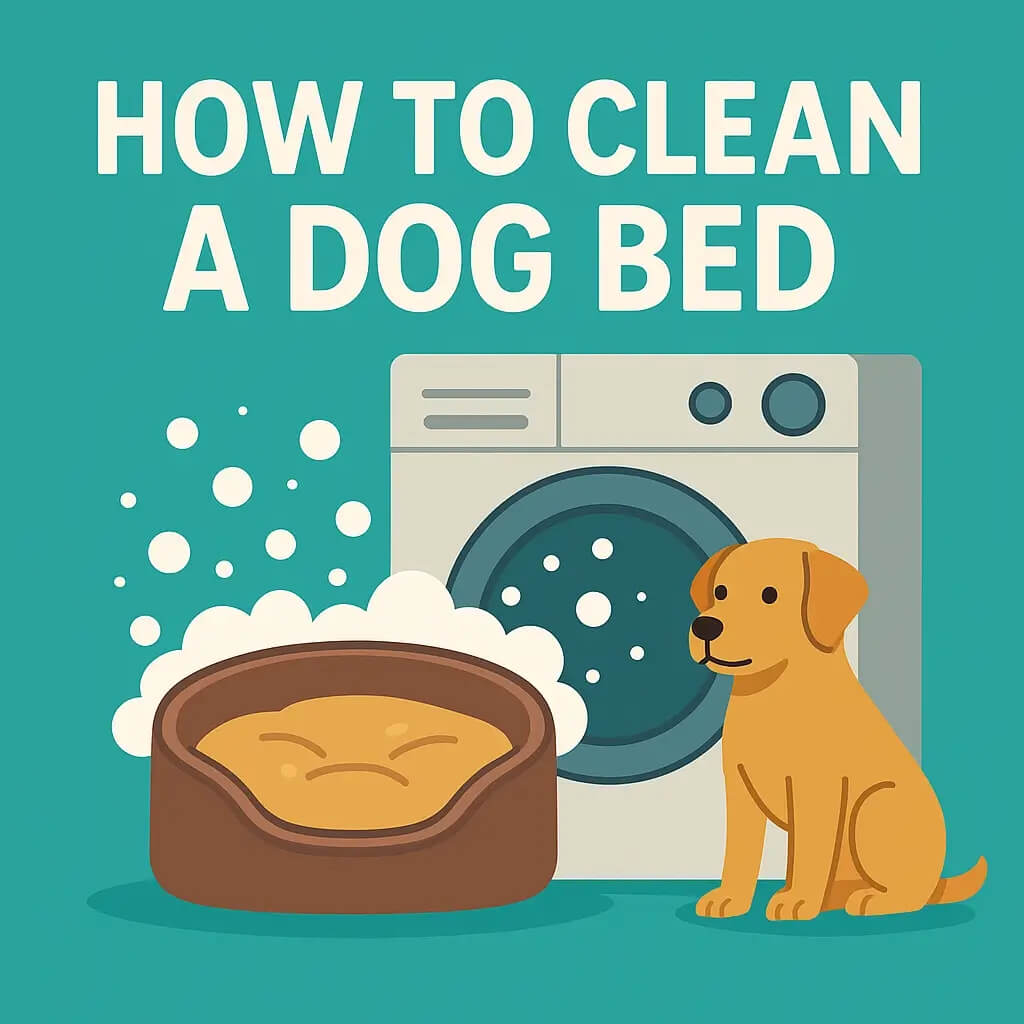Dog owners know that an upset tummy is not unusual. Mild bouts of diarrhea in dogs often happen after eating table scraps, spoiled food ingestion, or treats eating garbage. In many cases, these soft stools are short-lived and not a cause for panic. But sometimes, a dog’s diarrhea can be the first sign of a very serious health issue.
This guide will help you learn the warning signs, understanding the common causes of diarrhea, and knowing what steps you can safely take at home, you’ll be better prepared to protect your canine companion’s health.
What Is Dog Diarrhea?
Dog’s diarrhea means stools are looser or more frequent than your dog’s normal pattern. You may notice soft stools, mucus, urgency, or watery diarrhea. Vets sort diarrhea by where it starts in the gut. Small‑bowel diarrhea tends to be larger volume with fewer trips; large‑bowel diarrhea is frequent, with straining and mucus.
Color matters. Bright red blood usually points to the lower bowel, while black, tarry stool (melena) suggests digested blood from the dog’s upper digestive tract and needs immediate veterinary attention. Melena can appear with ulcers, toxins, or serious illness.
Types of Dog Diarrhea
Not all diarrhea in dogs looks the same. Understanding the types can help you decide when is dog diarrhea an emergency and when it’s only mild intestinal distress.
-
Acute diarrhea – This comes on suddenly, often after a dog eating spoiled food, table scraps, or treats eating garbage. It can be short-lived but sometimes points to a very serious concern.
-
Chronic diarrhea – Recurring bouts or persistent diarrhea that lasts for weeks. This is often linked to an underlying cause like inflammatory bowel disease or giardia bacterial infections.
-
Watery diarrhea – Very loose stools that can quickly dehydrate dogs suffering from it. If watery diarrhea continues for more than 24 hours, contact your vet right away.
-
Bloody diarrhea – Bright red blood or black tarry stools are warning signs of a very serious health issue. They may point to a painful blockage, poisons, or acute hemorrhagic diarrhea syndrome. Immediate veterinary attention is needed.
-
Soft stools with mucus – Often caused by large intestine irritation, stress, or mild bouts of infections. This can be uncomfortable but is not always a life threatening emergency.
Knowing these types helps pet parents judge if a pup’s diarrhea is a mild upset tummy or a very serious concern that demands immediate veterinary attention at the nearest emergency animal hospital.
Common Causes Of Diarrhea In Dogs
Dog’s diarrhea can have many triggers, ranging from mild to life threatening. Here are 10 of the most common causes of diarrhea in dogs:
-
Dietary indiscretion – Eating garbage, spoiled food ingestion, or sudden changes in dog food often lead to soft stools and mild bouts of gastrointestinal discomfort.
-
Table scraps and rich treats – Human food can upset a pup’s tummy feel and cause repeated episodes of diarrhea in dogs.
-
Parasites – Giardia bacterial infections and other parasites can cause recurring bouts of diarrhea. The CDC warns that Giardia can spread easily and needs veterinary attention.
-
Viral infections – Conditions like parvovirus are a very serious concern, especially for puppies with a compromised immune system.
-
Bacterial infections – Salmonella and other bacteria from spoiled food can cause acute diarrhea, vomiting, and other symptoms.
-
Foreign objects – Fabric ingesting toxins, bones, or other items can block the dog’s upper digestive tract, leading to bloody diarrhea and a painful blockage.
-
Toxins and poisons – Chocolate, medications prescribed for humans, or dog human medications can all be dangerous.
-
Medications and over the counter medications – Some medications prescribed for other issues, or giving over the counter medications without advice, can upset your dog’s stool.
-
Stress and environment changes – Moving, boarding, or travel can cause mild intestinal distress and diarrhea.
-
Chronic disease – Inflammatory bowel disease and other long-term conditions cause persistent diarrhea and require effective treatment from your vet.
If your canine companion shows appetite weakness signs, sticky gums, dry nose, or watery diarrhea lasting longer than a day, it may signal a very serious health issue. Always contact your vet or the nearest emergency animal hospital if your dog has diarrhea with blood, repeated episodes, or other symptoms that point to an underlying cause.
Is Dog Diarrhea an Emergency?
Go now (ER):
-
Bloody diarrhea (red or black/tarry), watery diarrhea every hour, collapse, pale or sticky gums, or a swollen, painful belly (possible foreign object or bloat).
-
Puppy, toy breed, senior, or chronic disease—these dogs dehydrate fast and need immediate veterinary attention.
Go soon (call your vet within 12–24 hours):
-
Two or more bouts in a day, experiencing repeated episodes, or other symptoms like low energy or not dog eating normally. Cornell advises calling if loose stool lasts more than two days.
Monitor briefly (hours, not days):
-
One mild episode, dog is bright, drinking, and comfortable. For gastrointestinal discomfort, your vet may suggest a short rest from regular food, then a bland diet (for example, plain cooked white rice with lean protein) or a short trial of specially formulated dog foods. Some owners ask about canned plain pumpkin—okay in small amounts if your vet agrees—but pumpkin pie filling is not a cause for relief (it contains sugar/spices). Do not start over the counter medications; many hurt dogs.
Is Bloody Diarrhea In a Dog Considered An Emergency?
Yes—every time. Bloody diarrhea is an emergency because it can signal active bleeding, a tearing underlying cause, or a fast‑moving disease. There are two main patterns:
-
Bright red blood (hematochezia): usually lower bowel irritation (colitis, infection, inflammatory bowel disease).
-
Black, tarry stool (melena): digested blood from the dog’s upper digestive tract (ulcers, toxins, clotting problems). Melena can mean a life threatening bleed—contact your vet right now or head to an ER.
What You Should Do
If your dog has mild diarrhea—one or two soft stools with no blood and otherwise normal energy—you may be able to manage it briefly at home. First, ensure fresh water is always available. Dehydration shows as sticky gums or sunken eyes, and can turn into a very serious concern quickly. A bland diet is often recommended for mild intestinal distress. This may include plain cooked white rice, boiled potatoes, lean chicken, or small amounts of canned plain pumpkin. Avoid pumpkin pie filling, which has sugar and spices that can make a dog’s upset tummy worse. Some vets also approve a spoon of natural yogurt with probiotics, but always check first.
If your canine companion has persistent diarrhea, appetite weakness signs, or experiencing repeated episodes, it’s time to contact your vet right away. Puppies, seniors, and dogs with a compromised immune system need quicker evaluation because they can’t tolerate fluid loss well.
What You Should Avoid
Some well-meaning owners try to treat diarrhea with human remedies, but this can be dangerous. Dog human medications such as ibuprofen, aspirin, or Tylenol are toxic and can cause organ failure. Even some over the counter medications like Imodium or Pepto-Bismol can mask symptoms or trigger complications unless your vet specifically recommends them.
Do not feed greasy table scraps, dairy in large amounts, or let your pup snack on treats, eating garbage, or leftover food. These can worsen gastrointestinal discomfort and lead to repeated episodes. Avoid bones, toys, or household items that can cause a foreign object blockage. A painful blockage is a life threatening emergency, often requiring surgery.

How Veterinarians Diagnose Dog Diarrhea
When you bring your dog in, the vet starts with a full history: recent diet changes, access to trash, spoiled food ingestion, or potential exposure to poisons. They’ll ask about the frequency and appearance of the dog’s stool and whether there are two or more bouts in a day.
Diagnostic tests may include a fecal exam to look for giardia bacterial infections, worms, or viral infections like parvo. The Centers for Disease Control and Prevention (CDC) notes that Giardia is a common parasite that can spread between dogs and humans, making testing and sanitation important.
Blood work helps detect dehydration, infection, or inflammatory bowel disease. X-rays or ultrasound may reveal if your dog swallowed a toy, sock, or other fabric ingesting toxins that caused a blockage. In urgent cases, the vet may also check gum color and hydration status. Identifying the underlying cause guides the most effective treatment, whether that’s fluids, medication, or dietary management.
How is diarrhea in dogs treated?
Treatment depends on severity. For mild bouts, vets often recommend a short break from regular food, then a bland diet of plain cooked white rice, lean chicken, or peeled boiled potatoes cottage cheese in small portions. Small servings of canned plain pumpkin may help firm stools, but never use pumpkin pie filling. Some vets may approve natural yogurt probiotics peeled boiled potatoes to restore healthy gut bacteria.
When diarrhea is more severe or the dog is weak, vets may provide IV fluids, medications prescribed such as anti-nausea or antidiarrheal drugs, or antibiotics if a bacterial infection is confirmed. Dogs with chronic diarrhea or inflammatory bowel disease may need specially formulated dog foods to reduce inflammation.
Recovery and Management of Dog Diarrhea
Once stabilized, recovery focuses on slowly returning to regular food. Many vets advise mixing the bland diet with your dog’s normal dog food over several days. This reduces stress on the digestive tract and helps prevent recurring bouts.
If diarrhea was caused by spoiled food, treats eating garbage, or stress, most dogs recover quickly with rest and hydration. If due to inflammatory bowel disease or chronic conditions, your vet may recommend specially formulated dog foods long term. Adding probiotics under guidance can help balance gut flora.
Owners should monitor dog’s bowel movements daily during recovery. Watch for signs like appetite weakness, new soft stools, or other symptoms like vomiting or lethargy. Experiencing repeated episodes means your canine companion needs another check-up. Hygiene is critical too: the CDC warns that Giardia can contaminate yards and water bowls, so disinfect and avoid dog parks until stools are firm.
Prevention of Dog Diarrhea
Prevention often comes down to diet and safety. Keep trash secure to prevent dogs suffering from spoiled food ingestion or toxins. Avoid sudden food changes; if you switch brands, do it gradually over a week. Feed high-quality dog food, and consider specially formulated dog foods if your vet recommends them for sensitive stomachs or chronic diarrhea.
Discourage table scraps and human snacks. Certain foods, like onions, grapes, or chocolate, are life threatening for dogs. Regular deworming and vet checks help prevent giardia bacterial infections and other parasites.
Always scan FDA pet food recalls before feeding a new bag. If your dog has a history of GI problems, discuss adding probiotics or a long-term bland diet plan with your vet. By taking simple steps, you can protect your dog’s health and avoid dangerous emergencies.
What About Imodium For Diarrhea In Dogs?
Pet owners frequently ask if they can administer Imodium from the pharmacy to treat their dog's diarrhea. The drug works to reduce stool speed but poses dangers to canine health. The genetic makeup of Collies and Shelties makes them vulnerable to toxic reactions from Imodium. Healthy dogs who receive Imodium might develop constipation while simultaneously hiding serious medical problems such as foreign objects or infections.
FAQs
How long should a dog have diarrhea before going to the vet?
If your dog has two or more bouts in a day, or diarrhea lasts more than 24 hours, call your vet. Puppies, toy breeds, or dogs with a compromised immune system may need care sooner.
What is considered severe diarrhea for a dog?
Watery diarrhea, bloody diarrhea, or diarrhea with other symptoms like vomiting, weakness, or collapse is severe. These are life threatening signs that require immediate veterinary attention.
Should I take my dog to the ER for diarrhea?
Yes, if there is blood, painful blockage signs, repeated vomiting, or your dog looks very weak. Go to the nearest emergency animal hospital rather than waiting for an appointment.
Should I let my dog's diarrhea run its course?
No. While a single mild bout may resolve, ignoring persistent diarrhea or experiencing repeated episodes risks dehydration and missing a very serious concern. Always contact your vet right if you’re unsure.
Conclusion
A single episode of dog’s upset tummy may not be alarming, but bloody diarrhea, weakness, or repeated episodes are a very serious health issue. The best course of action is to seek immediate veterinary care because delaying treatment could lead to a life-threatening emergency.












